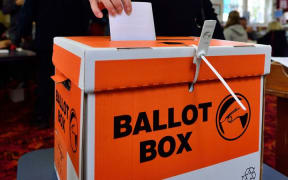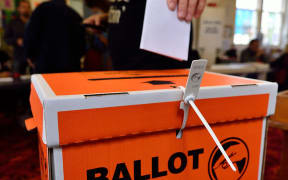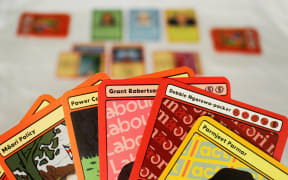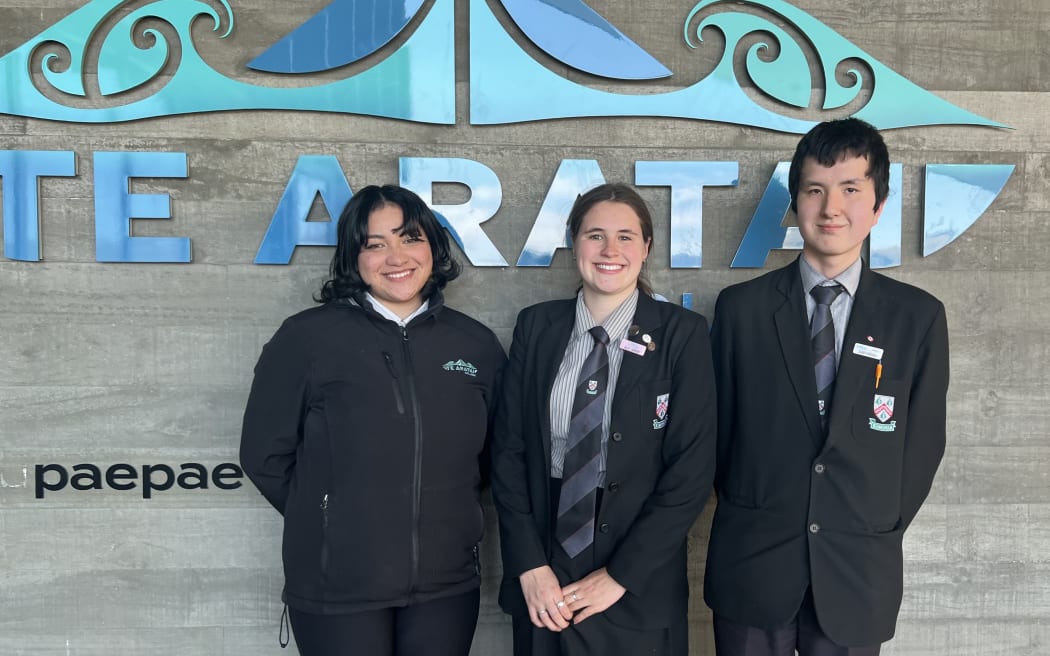
Te Aratai College students Destiny Martin, Milly Mussett and Justin Wilson, all 18, are eligible to vote for the first time in this year's general election. Photo: RNZ / Anna Sargent
More young people are turning out to vote each election, but their numbers still lag far behind the country's older voters.
Thousands of first-time voters will soon be helping to decide New Zealand's future.
Young people RNZ spoke to in Christchurch were feeling the pressure.
"I feel like it's a surreal experience, it's like you're becoming an adult," one 18-year-old said.
"It's a nerve-racking first-time experience because you just dive straight into it, you don't really learn about it in school. And then you've got heaps of people trying to influence you to also vote for their party, so having to do your research is a bit overwhelming as well," another said.
"It's exciting because I missed the last election by just a little bit. It's something that I have to do, is the way I see it - it's like you can't not vote. Everyone who's told me that they're not voting, I have fought them," a student said.
The Electoral Commission's latest data suggested older people were paying more attention to the election than younger people.
As at 10 September, 36 percent of 18- to 24-year-olds who were eligible to vote had not yet enrolled.
That compared with about 14 percent of 25- to 29-year-olds yet to enrol, and 2 percent of 60- to 64-year-olds.
Some 18-year-old students at Te Aratai College in Christchurch gave an insight into why so many young people might be putting casting a vote in the too hard basket.
They felt politics was not really targeted at young people, with much of the debate and many of the policies aimed at much older people.
Some felt their issues were not seen as important enough, and that this was a barrier to engaging with the electoral process.
Student Milly Mussett said she wanted to see more young people engaged in the election.
"We've got friends that have just turned 18 and we talk about it, we'll be like: 'Are you going to vote?' and they're like: 'I don't know if I can be bothered', because again it's that research thing, you've got to look into the election... and they might not have that role model - like family members - who will openly talk about their knowledge, so they're like: 'I've got to do it by myself'," she said.
Mussett said young people were most tuned in to things that would impact them for many years, like climate change.
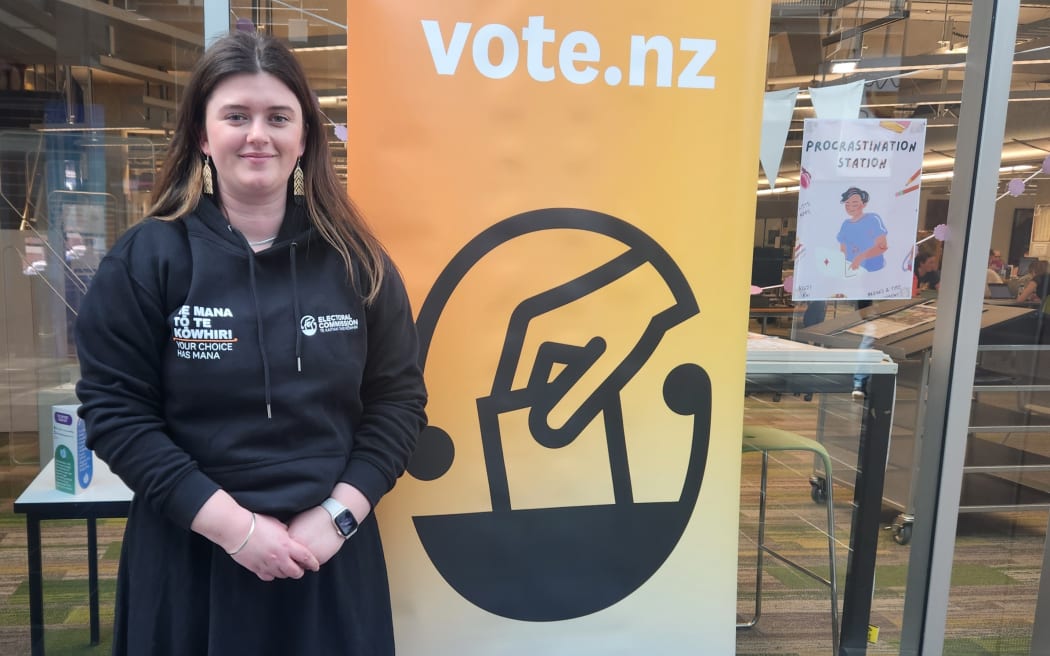
The Electoral Commission's Christchurch-based youth advisor Tori Holden says it's important young people have 'a voice at the table'. Photo: RNZ / Anna Sargent
Another issue close to their hearts was a lack of support for young people leaving school and support for students at university.
Student Destiny Martin said young voters who felt they had been forgotten should remember they were a group that could hold a lot of sway.
"If we realise we do have the power in numbers, we could kind of influence and dictate the policies ourselves," she said.
"But it's about getting those numbers, it's about getting the information out to people to get the numbers," Mussett added.
The number of young people who turned out to vote increased massively between the 2017 and 2020 elections - by 43,000.
The Electoral Commission is working to keep growing that number.
The commission's Christchurch-based youth advisor Tori Holden was visiting schools and universities to talk to young voters.
She said some young people shied away from talking about politics, but others were really passionate and engaged.
"Currently young people tend to be a demographic that are a bit more lowly engaged, and so that's why that's our role to encourage them and make sure they have a voice at the table for the decision making.
"The results need to be reflective of what everyone wants, and if young people aren't at the table, who's going to speak for them? It has to be them."
The good news was youth turnout at general elections appeared to be increasing.
Seventy-eight percent of 18- to 24-year-olds who were enrolled in 2020 went on to vote, which was up from 69 percent in 2017, and 63 percent in 2014.


